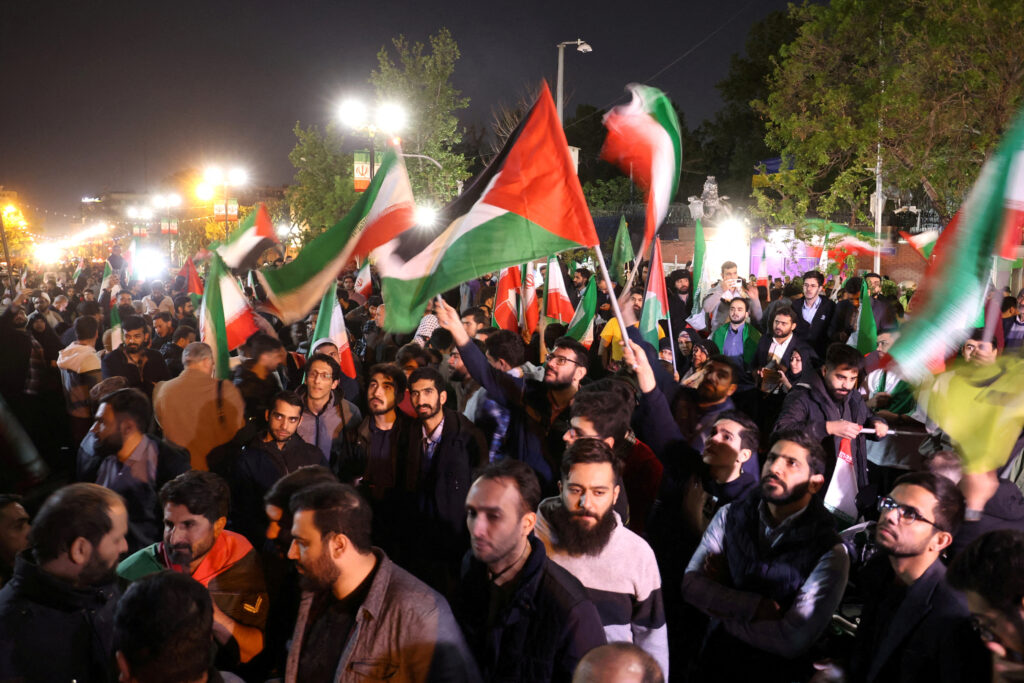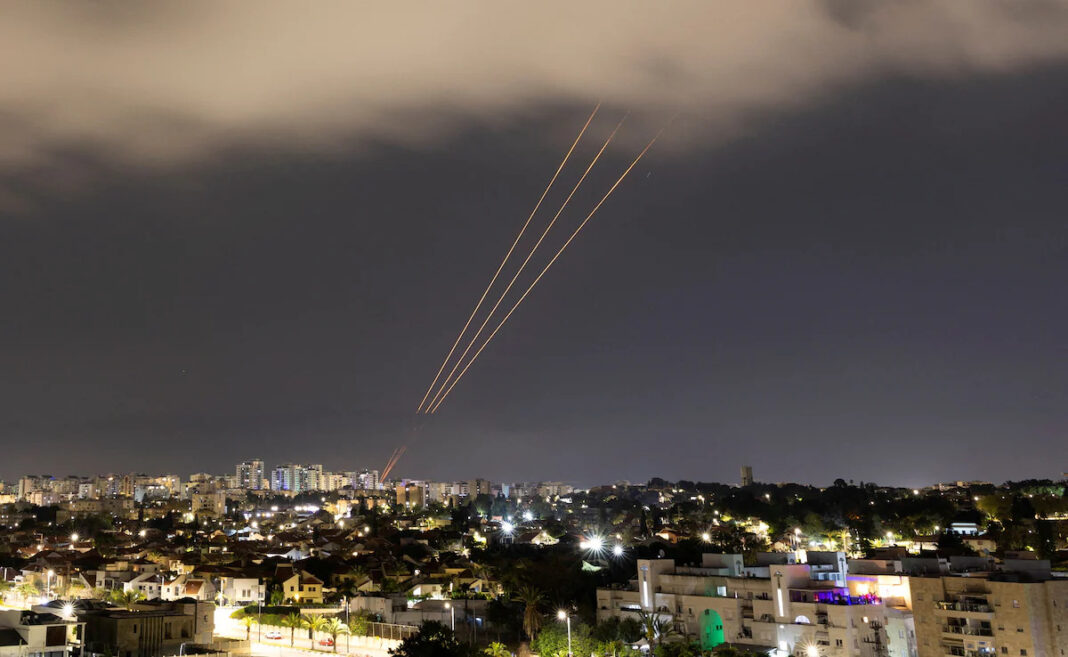In a significant escalation of the longstanding tensions between Iran and Israel, the Iranian military has carried out a direct attack on the Jewish state, triggering strong warnings from Israeli leadership and international calls for restraint.
The attack, which occurred on Saturday night, involved the launch of hundreds of drones, ballistic missiles, and cruise missiles directed at various targets within Israel. According to the Israel Defense Forces (IDF), the assaults primarily targeted an air base in southern Israel, causing only minor damage but raising alarms about the potential for a further escalation of the conflict.

In the aftermath of the attack, IDF Chief of Staff Lt. Gen. Herzi Halevi issued a stern warning, stating that Iran’s actions “will be met with a response.” Halevi’s remarks came during a visit to the Nevatim air base, where he declared that Israel is “considering its next steps” in response to the Iranian strike.
“Iran wanted to harm the strategic capabilities of the State of Israel — that is something that had not happened before,” Halevi said. “We were prepared for the ‘Iron Shield’ operation — preparation that brought Iran to also encounter aerial superiority.”
The attack marks a significant shift in the ongoing tensions between Israel and Iran, as it represents the first time that Iran has launched a direct military assault on the Jewish state, despite decades of enmity dating back to the Islamic Revolution of 1979.
According to military officials, the Iranian strike involved hundreds of missiles and drones, with the vast majority being intercepted by Israel’s air defense systems and warplanes, in coordination with a US-led coalition of partners. Nevertheless, the sheer scale of the attack has raised concerns about the potential for a wider conflagration in the region.
Israeli Prime Minister Benjamin Netanyahu has convened his war cabinet twice in the past 24 hours to discuss a potential response, although no specific decisions have been announced. The government is under significant international pressure to exercise restraint and avoid further escalating the conflict.
“Israel will do whatever is required to defend itself,” Netanyahu told US House Majority Leader Steve Scalise, according to the prime minister’s office. However, the US has made it clear that it will not participate in any Israeli counter-strike, with President Joe Biden urging Netanyahu to show restraint.
The international community has also weighed in, with French President Emmanuel Macron, German Chancellor Olaf Scholz, and British Foreign Secretary David Cameron all calling for calm and urging Israel to refrain from further military action. United Nations Secretary-General Antonio Guterres has also appealed for restraint from both sides.
The attack comes in the wake of a suspected Israeli strike two weeks earlier on an Iranian consular building in the Syrian capital of Damascus, which killed two Iranian generals. Iran has stated that Saturday’s assault was in retaliation for this earlier incident.
The head of the United Nations nuclear watchdog, Rafael Grossi, has expressed concern about the possibility of Israel targeting Iranian nuclear facilities in response to the attack. Grossi said that while International Atomic Energy Agency (IAEA) inspections of Iranian facilities will resume on Tuesday, they had been temporarily halted on Sunday due to “security considerations.”
The escalating tensions between Israel and Iran have implications far beyond the two countries’ borders. The US, Britain, and Jordan have all confirmed that their air forces assisted in intercepting the Iranian missiles and drones, highlighting the regional and global implications of the conflict.
Furthermore, the British Prime Minister, Rishi Sunak, has stated that the Group of Seven (G7) nations are working on a package of coordinated measures against Iran in response to the attack.
The conflict between Israel and Iran has been simmering for decades, with both sides engaged in a complex web of proxy wars and covert operations throughout the region. The latest direct attack, however, represents a significant escalation that could have far-reaching consequences.
Analysts warn that the potential for further escalation is high, as both Israel and Iran have shown a willingness to engage in direct military confrontation. The stakes are particularly high given the potential involvement of regional and global powers, as well as the ongoing concerns about Iran’s nuclear program.
As the international community scrambles to defuse the situation and prevent a wider regional conflict, the focus will be on the response of the Netanyahu government and whether it can be persuaded to exercise restraint in the face of what it perceives as a direct provocation.
The coming days and weeks will be crucial in determining the trajectory of the conflict and the potential impact on the fragile balance of power in the Middle East. With the specter of war looming large, all eyes will be on the key players involved, as they navigate the treacherous path ahead.





